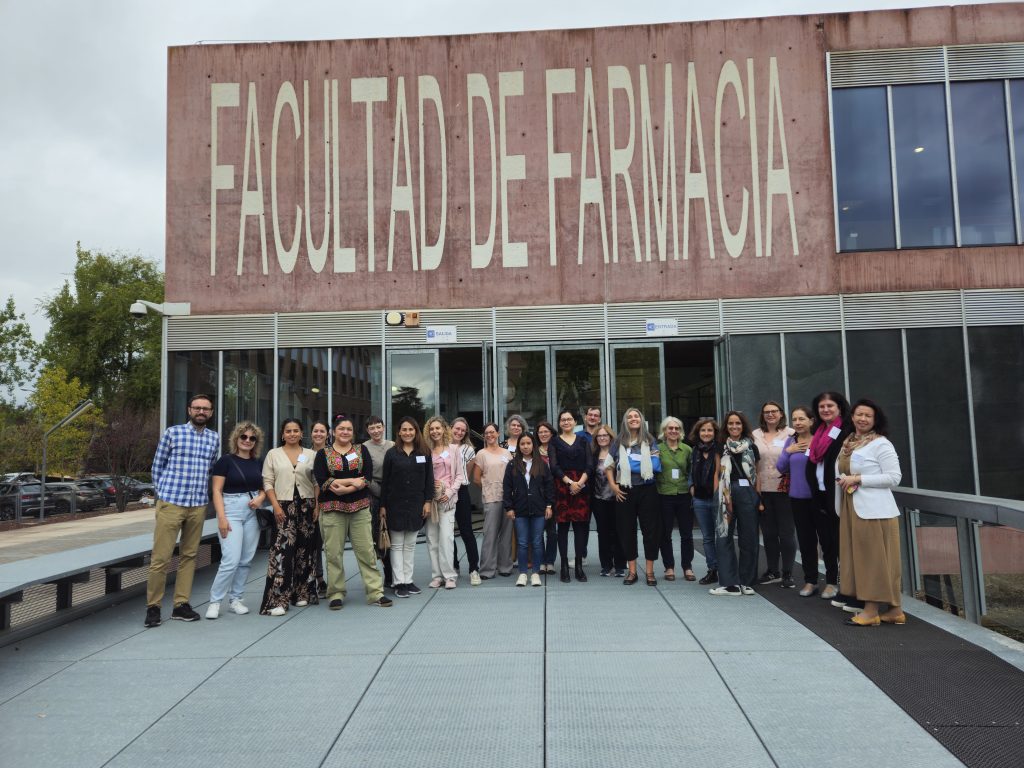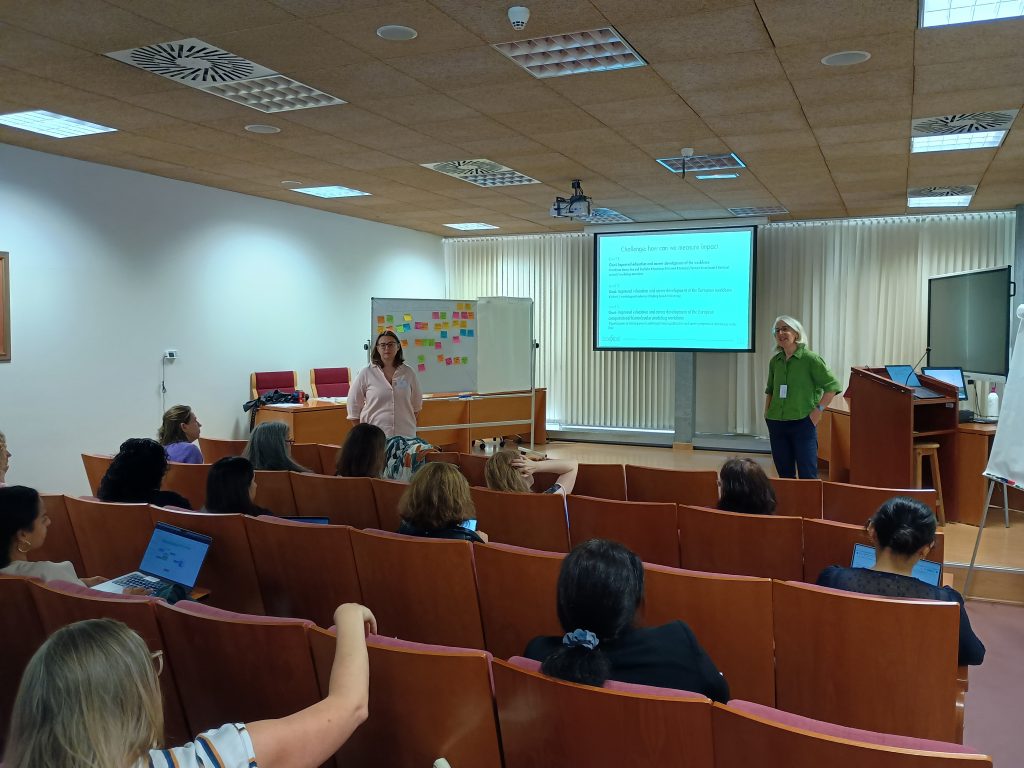
RItrainPlus and BioExcel have recently hosted a knowledge-exchange workshop on “Upskilling and training users in science and research”. The event took place at the Complutense University of Madrid (Spain) on the 24th and 25th of September 2024, with a total of 26 participants from 20 different research infrastructures and other scientific institutions distributed across 12 countries. During the 2-day workshop, participants and facilitators shared experiences and challenges in building scientific capacity and providing training both for their organisations and for the users of the scientific instrumentation and tools they work with. RItrainPlus was able to provide travel bursaries to support the participation of some of the attendees.
The workshop content was defined by asking relevant communities related to training, Research Infrastructures and others. Confirmed participants were asked in advance in which workshop sessions they would like to share their experiences/challenges. This format created a very dynamic environment and promoted lively discussions.
Overall, the workshop was designed to be highly interactive and included short presentations from different participants to share the work and approaches used in their work. The first day kicked off with a keynote session about mentoring and pedagogy, and it was followed by group discussions on the topics of finding a suitable training format in relation to the type of event and activity (e.g. whether it’s a face-to-face course or a virtual hands-on session), different platforms to deliver training, and how to promote engagement and interaction in online settings. Some of the take-home messages included understanding and discussing the training needs of your audience before proceeding to organise training, for example in cases where trainees participation is related to their managers support, and the importance of not only collecting post-training feedback but reacting based on the feedback received. For the section of engagement in online settings, participants discussed the importance of having strong moderators as well as helpers to run the sessions and tools.
After an enjoyable workshop dinner, on the second day the event launched with sessions on how to manage trainees expectations, focusing on the aspects of the training course audience and overview, course application, content, and trainers. On the session on how to measure the societal impact of training, one of the aspects of the workshop focused on the Standards/Frameworks to measure impact.
Additionally, before and during the workshop, the most important challenges of the participants had been collected, which informed the “Bring your own challenge” session that took place at the end of the workshop. In this session, the participants worked in 7 breakout groups on the following topics:
- Engagement with trainers
- Assessment in training
- Running online training with effective interaction
- Learning materials
- Making your training activities findable and discoverable
- Using training to support and maintain communities
- Training at core facilities / RIs
Finally, the workshop wrapped up with a discussion about how the event can lead to future joint activities and collaborations.
The participants highlighted the value of attending this workshop in person, and almost 80% stated that they would recommend the workshop. For future editions, it was noted that more time to continue conversations and expand discussions would be beneficial, as there was just so much to share and learn!
Below we share some of the testimonials shared by the participants. We want to express our most sincere gratitude for everyone’s participation and we look forward to staying in touch with everyone.
“Excellent opportunity to connect with experts in the field of training users. I learned a lot on alternative training platforms and strategies”
“The workshop emphasized the importance of transparency in training design, with the inclusion of multiple scientific perspectives and disciplines […] Training designers must ensure that output activities are adaptable and responsive to the changing requirements of research settings […] This session has significantly influenced how I approach professional development and training in the context of research and innovation support services”

“The ‘Upskilling and Training Users in Science and Research’ workshop was an incredibly enriching experience that exceeded my expectations. The practical insights, collaborative discussions, and innovative approaches shared by the facilitators and participants have significantly enhanced my perspective on how to effectively train and engage diverse audiences in scientific research. I deeply appreciate the opportunity to learn from experts in the field and connect with like-minded professionals from around the world. This experience has undoubtedly shaped my approach to future projects, and I am grateful for the knowledge and connections I gained.”
‘It was great to get to know other RIs training coordinators and exchange ideas, challenges, and also common views and approaches. I look forward to keep in touch with the group!’
“I had a great time during these two days of workshop with you in Madrid. The whole team as well as the participants were very committed to do their best, to share their experience. I really liked the fact that [it was] very interactive and lively. Considering that next period I will have to organize an International Conference everything came just in time. My event will be both online and in person, so now I know the trips and tricks. Congratulations for everything you organized! Both the theoretical and practical parts were really useful!”
